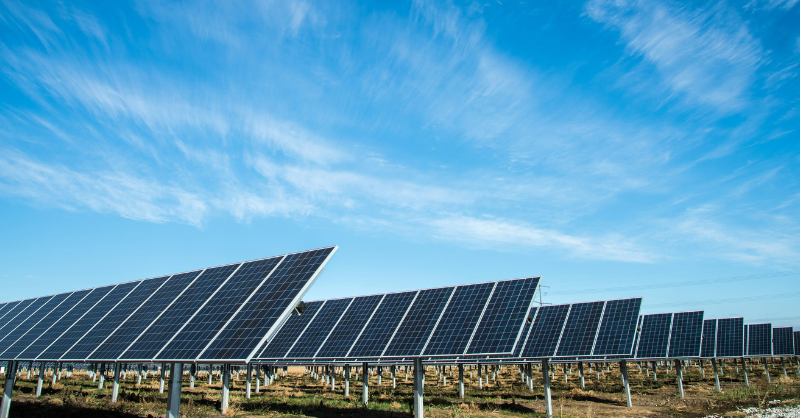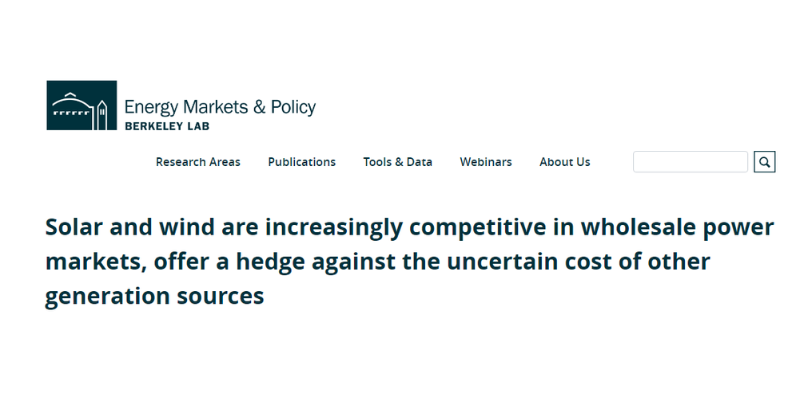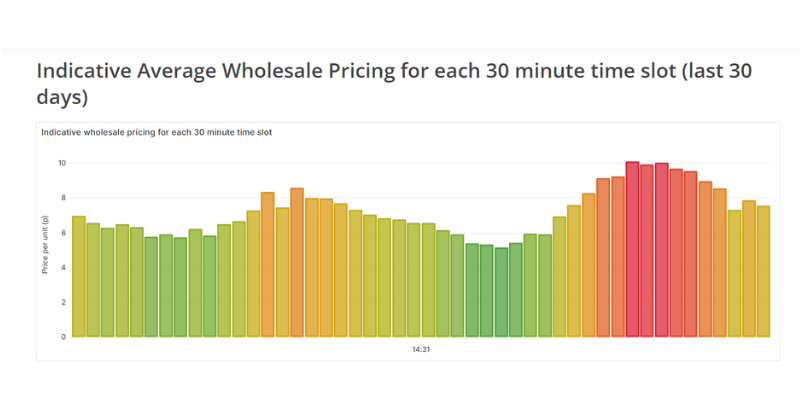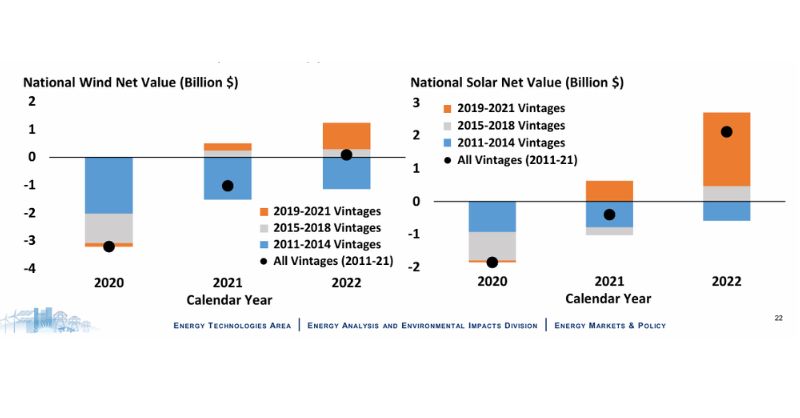
The 'value' of wind and solar to the grid
Can more wind and solar lead to lower electricity prices for consumers. The answer is broadly yes - and some consumers are already seeing the benefit.
Can more wind and solar lead to lower electricity prices for consumers. The answer is broadly yes, if the cost of purchasing renewable electricity in the wholesale market is cheaper the alternatives (mostly from fossil fuels).
This is a debate that has raged for many years now. One side argues that renewables are getting cheaper. And that they are now comparable in price with existing fossil fuel generation, and better than new fossil fuel plants. And the other argues that the variability of wind and solar mean the system needs extensive backup alternatives. And they say that when you add the cost of these in, renewables are more expensive.
The answer to this question is really important. If renewables, on a total cost basis, really are cheaper, then we can expect electricity utilities to gradually replace older fossil fuel generation with new renewables. But, if it's not true, then we have a problem. Which is why an report from Berkeley Labs on the grid value and cost of utility scale renewables in the US Caught Our Eye.
As the report says, we are now at an inflection point. Electricity from wind and solar used to be more expensive, but now it's much cheaper ... and as that gets reflected in consumer bills, expect a surge in support for renewables.
This is a What Caught Our Eye story - highlighting reports, research and commentary at the interface of finance and sustainability. Things we think you should be reading, and pointing out the less obvious implications. All from a finance perspective.
It's free to become a member ... just click on the link at the bottom of this blog or the subscribe button. Members get a summary of our weekly posts, including What Caught Our Eye and Sunday Brunch, delivered straight to your inbox. Never miss another blog post !
Wind & Solar value - and the implications for consumer prices
Recent research has perhaps un-surprisingly found that cost savings are the most persuasive driver of broad support for renewable energy. And so if renewables, on a total cost basis, really are cheaper we could expect the growth in renewables to continue.

This might seem an odd debate to be having. After all a range of studies have highlighted that producing electricity from solar and wind is cheaper than that from new build fossil fuels. And in some cases it's cheaper than continuing to use existing fossil fuel plants.
To quote from the IEA Renewables 2023 report:
In 2023, an estimated 96% of newly installed, utility-scale solar PV and onshore wind capacity had lower generation costs than new coal and natural gas plants. In addition, three-quarters of new wind and solar PV plants offered cheaper power than existing fossil fuel facilities.
That seems pretty clear.
But - nearly all of us don't buy our electricity from the power station, we buy it from our local electricity supplier. The price we pay reflects the cost of electricity, plus transmission and distribution costs, and all the costs related to keeping the electricity grid stable.

Plus, there isn't really such a thing as an 'electricity price'. The price paid, unless you have a fixed price contract or you have hedged, moves around by time of day, day of the week, and by season. The chart below is from the Energy Stats UK site. It's all about the balance of supply and demand, in this case over the day. And we see even bigger swings by season.

The bottom line is - the price you pay will be very different from the cost for the power station. So solar and wind might be cheaper to produce, but they could end up being more expensive by the time the electricity gets to the user. In the past this was true. Renewables were more expensive.
But is this correct now, and will renewables end up reducing the bills for consumers?
Let's go back to the Berkeley Labs study. They asked two questions. The first is the easier one.
How does the wholesale cost of electricity from renewables compare with the comparable cost of buying fossil fuel electricity in the wholesale power markets?
So, comparing actual wholesale prices at the same time of the day. And for those who are a bit geeky like us, this also takes account of what is called 'capacity value' - which is the cost to the grid operator of making sure they always have enough electricity to meet supply.
They studied electricity production from 935 solar PV plants and 502 wind farms - so a big sample.
And the answer was ... newer wind and solar plants were cheaper. But electricity from older plants was not. They call this the Net Value.

So, this is good news for those who argue that more renewables will lead to cheaper electricity prices.
If you are a regular reader of our blogs you know what is coming next ..... consumers don't always see these cheaper renewable prices reflected in their bills.
But that is starting to change. As newer, and cheaper, wind and solar come on line, the cost difference becomes greater, and the savings become more material. And for certain types of electricity suppliers, such as electricity utilities who own their own renewable generation or those who buy their electricity on longer term fixed price PPA's, the cost savings tend to get passed on to consumers. And new contractual structures are leading to these savings being reflected in consumer bills. One example they talk about in the report is New York.
As the report says, we are now at an inflection point. Electricity from wind and solar used to be more expensive, but now it's much cheaper ... and as that gets reflected in consumer bills, expect a surge in support for renewables.

Please read: important legal stuff.


